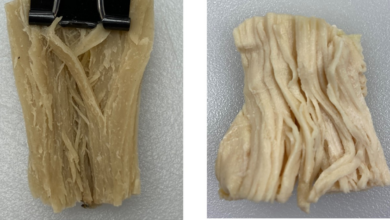Covid vaccine protection ‘short lived,’ booster doses essential, study confirms

Protection offered by Covid-19 vaccines against infection with the novel coronavirus is “short-lived,” according to a new study that says up-to-date booster doses are essential for “dependable” immune defense against the virus.
The findings, published last week in the journal PNAS, provide additional evidence that booster vaccination is a crucial approach towards the curtailment of breakthrough infections, in which a person becomes infected despite being vaccinated, as well as from reinfection with the Covid-19 virus.
In the study, researchers, led by those at the Yale School of Public Health in the US, quantified the likelihood of future infection following natural infection or vaccination by the Moderna, Pfizer, Johnson & Johnson, or Oxford-AstraZeneca vaccines.
They say the risk of breakthrough infections depends on the vaccine type, with mRNA vaccines like those by Pfizer and Moderna offering the greatest duration of protection.
The research found that mRNA vaccines offer immune protection nearly three times as long as that from natural infection and the Johnson & Johnson and Oxford-AstraZeneca vaccines.
“The mRNA vaccines produce the highest levels of antibody response and in our analysis confer more durable protection than other vaccines or exposures,” study lead author Jeffrey Townsend from the Yale School of Public Health said.
“However, it is important to remember that natural immunity and vaccination are not mutually exclusive. Many people will have partial immunity from multiple sources, so understanding the relative durability is key to deciding when to provide a boost to your immune system,” Dr Townsend said.
The study finds that “dependable protection” against reinfection with the novel coronavirus requires up-to-date boosting with vaccines that are adapted to address changes in the virus that occur as part of its natural evolution over time.
“We tend to forget that we are in an arms race with this virus, and that it will evolve ways to evade both our natural and any vaccine-derived immune response,” Alex Dornburg, another co-author of the study, said.
“As we have seen with the Omicron variant, vaccines against early virus strains become less effective at combating new strains of the virus,” Dr Dornburg said.
In the study, scientists estimated infection risks with the Covid-19 virus by comparing it with the reinfection probabilities seen in endemic coronaviruses such as those that cause common colds.
“SARS-CoV-2 mirrors other endemic coronaviruses that also evolve and reinfect us despite natural immunity to earlier strains,” Dr Townsend said.
Citing some of the limitations of the study, researchers says the focus on antibody-mediated immunity in the research “mask” other factors like variation in age, immune status, infection severity, vaccine response, and the immune system’s T- and B-cell memory.
“Our approach does not account for these factors or their interactions,” scientists said, adding however that antibodies have been shown to be the dominant component of the immune system providing protection against infection by the novel coronavirus.
“Continual updating of our vaccinations and booster shots is critical to our fight against SARS-CoV-2,” Dr Townsend added.





